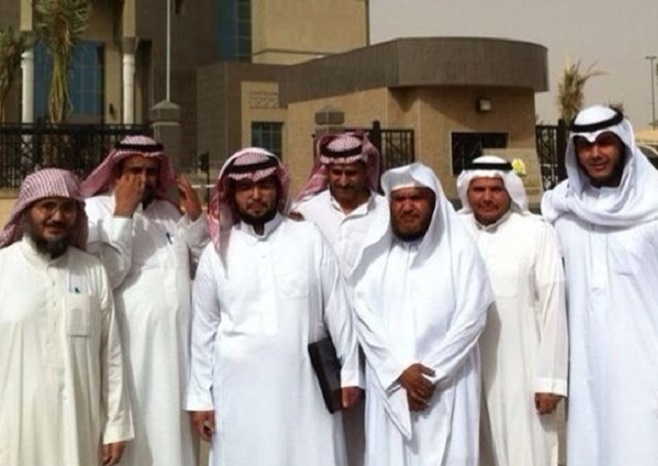On 10 January 2017, Saudi Arabia’s Specialized Criminal Court (SCC) sentenced human rights defender and lawyer Abdulaziz al-Shubaily to eight years in prison followed by an eight-year travel ban. Al-Shubaily is a founding member of the Saudi Association for Civil and Political Rights (ACPRA), which documented human rights abuses in the Kingdom while promoting a vision for constitutional reform. Americans for Democracy & Human Rights in Bahrain (ADHRB) strongly condemns the sentencing of al-Shubaily, calls on the Government of Saudi Arabia to drop all charges against him, and overturn his sentence.
As a co-founder of ACPRA, al-Shubaily contributed to the organization’s efforts to promote human rights by providing support and representation to victims of the kingdom’s human rights violations. Al-Shubaily also served as the legal representative for nine of ACPRA’s founding members who have been prosecuted since December 2012.
In November 2013, Saudi authorities interrogated al-Shubaily over his human rights work with ACPRA, statements he had signed defending the right to peaceful protest, and phone conversations in which he discussed demonstrations that took place in the city of Buraydah. After al-Shubaily refused to discontinue his activism, authorities formally charged him in July 2014 with crimes including, “spreading a statement which calls for continuous demonstrations,” “describing judges as unjust and lacking integrity,” and “accusing security forces and senior officials of suppression, torture, assassination, enforced disappearance and violating human rights.” In September 2014, the public prosecutor brought al-Shubaily’s case before the SCC. After fourteen hearings, the SCC sentenced him on 29 May 2016 to eight years in prison and followed by an eight-year travel ban. Al-Shubaily appealed the decision and remained at liberty until the SCC upheld his sentence in Tuesday’s verdict. He will reportedly appeal the new verdict.
“Abdulaziz al-Shubaily’s latest conviction is a clear indicator that the Saudis will continue with their relentless and sweeping efforts to target and prosecute the country’s dwindling number of human rights defenders throughout 2017,”said Husain Abdulla, Executive Director of Americans for Democracy & Human Rights in Bahrain. “The Kingdom’s recent reelection to the United Nations Human Rights Council has only emboldened the government to operate with impunity against human rights activists and with flagrant disregard to rule of law and fair trial standards.”
Al-Shubaily is one of many Saudi activists who have recently been detained or appeared in court in connection with their peaceful human rights work. On 8 January, the Criminal Investigation Department in Mecca summoned human rights defender, Essam Koshak. According to reports, authorities subsequently detained Koshak, denied his request for a lawyer and are questioning about him in connection with his Twitter account, which is mainly devoted to human rights in Saudi Arabia. On 5 January 2017, authorities summoned Ahmed al-Mushaikhass, a founding member of the Adala Center for Human Rights, an independent human rights organization which was forced to close over licensing issues in 2013, to the Qatif police station for questioning. Authorities subsequently transferred him to al-Dammam police station where he remains in custody. On 18 December 2016, officials at the Bureau of Investigation and Prosecution in Mecca summoned human rights activist and a member of ACPRA, Issa al-Nukheifi, for interrogation. Authorities are currently holding him in Mecca’s General Prison after questioning him about his tweets in support of Saudi human rights activists and other detainees.
ADHRB calls on the government of Saudi Arabia to reverse the latest ruling against Abdulaziz al-Shubaily. We further call on the Saudi government to release all prisoners of conscious, including recently detained human rights activists, who continue to be persecuted solely for speaking out against injustices and their work on behalf of victims of human rights violations in the kingdom.





